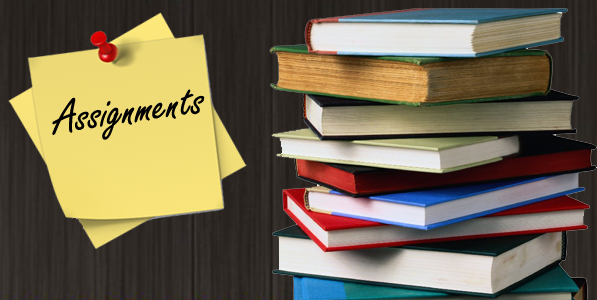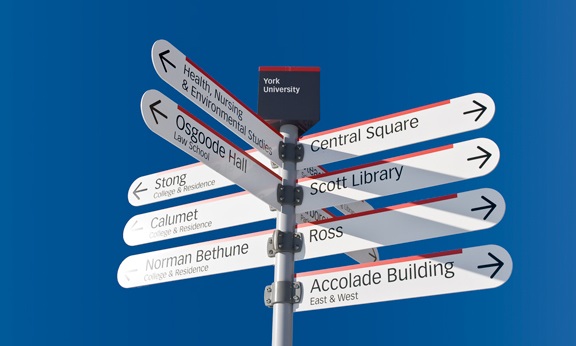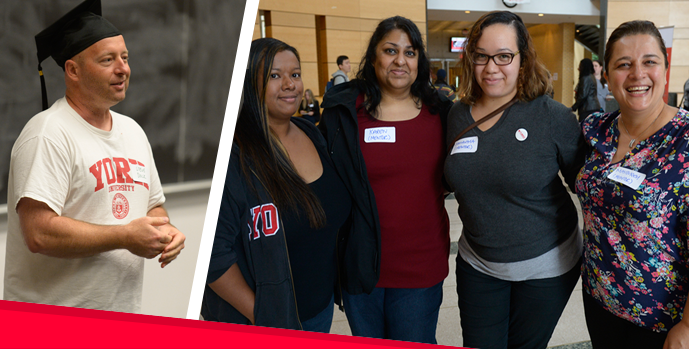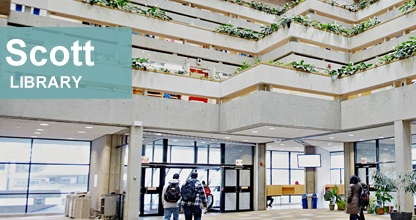
By now, you’re well into your Winter Term courses and you’re getting ready to submit your first batch of major assignments. I recommend that before you dive into your work you reflect on your academic performance.
Ask yourself the following questions: Were you pleased with your final grades last term? What are some of things that you did well? What are some things that might have prevented you from excelling?
For the mature students who started classes in January and are unfamiliar with writing academic papers, try to think of the areas where you might struggle the most: Do you think academic writing will be a problem? Are you unsure about how to use the library or how to find resources for your essays? Do you need help with formatting your papers?
Below I hope to provide some ideas on how you can address your weaknesses when dealing with assignments, and hopefully help you to achieve the grades that you desire.
Understanding the assignment

Go to your instructors with questions.
As soon as you receive the instructions for your assignment, ask yourself if you understand what the assignment is asking you to do. If you don’t then you need to have a conversation with your tutorial assistant or your professor. I think it’s important for students to attend their instructor’s office hour, especially when dealing with assignments. No two TA’s/professors are the same, so it’s always a good idea to familiarize yourself with your instructor’s expectations. By speaking to them in advance about your concerns and the ideas you have for your project, you are showing initiative. Additionally, you’ll be able to progress through the assignment a lot more smoothly because you’ll have a better understanding of the direction you should go in.
One thing to keep in mind, although you are encouraged to seek out your professors and TAs to speak to them about your academics, it is up to you to compile your ideas and fact-check your work.
There are three very important components to pay attention to when reading over the guidelines for your assignment: (1) deadline, (2) percentage of your grade and (3) word count.
- Deadline - This, of course, refers to the date your assignment is due. Compare your deadlines with all the other things that may be taking place in your life around that time. Assignments can sneak up on you, so I highly suggest using a monthly calendar to keep track of all your deadlines. You can easily print one off or even use Google Calendars, which is an application you can access through your York University email account.
- Percentage of Your Grade - Assignments that are worth more will require you to do a lot more work. You’ll need to put aside time to plan out your paper or presentation, conduct your research and then put everything together.
- Word/Page Count - Pay attention to the word/page count to estimate the amount of research you’ll have to do for your assignment. For instance, a 12-page paper requires that you to know a lot about your topic. With something of that length, you can’t rely solely on your class notes; you’re going to have to find books and journal articles to help you out. This means you need to start on the assignment at least a month before it’s due, putting aside time to work on portions of it.
Improving Your Academic Writing

There are variety of options and resources for you to utilize to improve your writing. The first, of course, is to visit the writing centres at York. These centres offer one-on-one appointments and will proofread student work. It’s recommended that you get your work to the writing centre instructors well in advance. If you are a Liberal Arts and Professional Studies Student, you will visit the Writing Centre located in the Ross South Building. If you are from another faculty, click on the following link to view the other writing centres: http://acadresources.yorku.ca/writing-centres
 Learning Skills Services and Learning Commons: Throughout the year these two services offer workshops that focus on constructing essay arguments, improving academic analysis, and writing skills.
Learning Skills Services and Learning Commons: Throughout the year these two services offer workshops that focus on constructing essay arguments, improving academic analysis, and writing skills.
Learning Skills Services: http://lss.info.yorku.ca/
Learning Commons: http://learningcommons.yorku.ca/
 Study Hub: This is a new resource and connects students to support centres at York University, but also to tutors. Students who are finding it extremely difficult to deliver what their professors expect of them may want to consider finding a tutor who is familiar with their field of study.
Study Hub: This is a new resource and connects students to support centres at York University, but also to tutors. Students who are finding it extremely difficult to deliver what their professors expect of them may want to consider finding a tutor who is familiar with their field of study.
Study Hub: http://studyhub.info.yorku.ca/
 Mentor Programs: Every faculty has a mentor program that matches students with upper-level peers. Mentors can give you some ideas on how to approach academic assignments since they already have experience completing them. Talking over your ideas with someone else is a useful way to find out if you’re heading in the right direction.
Mentor Programs: Every faculty has a mentor program that matches students with upper-level peers. Mentors can give you some ideas on how to approach academic assignments since they already have experience completing them. Talking over your ideas with someone else is a useful way to find out if you’re heading in the right direction.
You can choose to get involved with the mature student mentors at ACMAPS: Mature Student Peer Mentor Program
Or you can look at your Faculty website to find out about their peer mentor programs: Faculty Listings
 Library: It’s important that students learn how to use the library to conduct research. The York University library is an excellent resource for finding theoretical books and journal articles. By visiting the York University library website (http://www.library.yorku.ca/web/) you can access the online research guides, which are listed by academic discipline. You can also visit the Learning Commons on the second floor of the Scott Library to receive help conducting research for your assignments.
Library: It’s important that students learn how to use the library to conduct research. The York University library is an excellent resource for finding theoretical books and journal articles. By visiting the York University library website (http://www.library.yorku.ca/web/) you can access the online research guides, which are listed by academic discipline. You can also visit the Learning Commons on the second floor of the Scott Library to receive help conducting research for your assignments.
 Spark – Student Paper and Academic Research Kit: For an online, interactive approach to learning about research and writing, try Spark. This resource can be accessed from the comfort of your home and talks about academic integrity, citations, how to choose a topic and how to construct a thesis. Since you can access it from anywhere, it can be a very convenient resource for new students.
Spark – Student Paper and Academic Research Kit: For an online, interactive approach to learning about research and writing, try Spark. This resource can be accessed from the comfort of your home and talks about academic integrity, citations, how to choose a topic and how to construct a thesis. Since you can access it from anywhere, it can be a very convenient resource for new students.
Spark: http://www.yorku.ca/spark/
I hope you'll find this information valuable. Visit us at ACMAPS in 111 Central Square or on Facebook if you have any questions.

